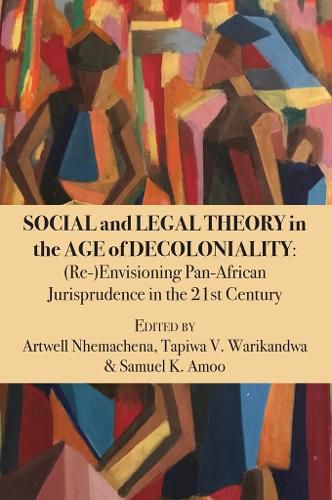Readings Newsletter
Become a Readings Member to make your shopping experience even easier.
Sign in or sign up for free!
You’re not far away from qualifying for FREE standard shipping within Australia
You’ve qualified for FREE standard shipping within Australia
The cart is loading…






This title is printed to order. This book may have been self-published. If so, we cannot guarantee the quality of the content. In the main most books will have gone through the editing process however some may not. We therefore suggest that you be aware of this before ordering this book. If in doubt check either the author or publisher’s details as we are unable to accept any returns unless they are faulty. Please contact us if you have any questions.
Right from the enslavement era through to the colonial and contemporary eras, Africans have been denied their human essence - portrayed as indistinct from animals or beasts for imperial burdens, Africans have been historically dispossessed and exploited. Postulating the theory of global jurisprudential apartheid, the book accounts for biases in various legal systems, norms, values and conventions that bind Africans while affording impunity to Western states. Drawing on contemporary notions of animism, transhumanism, posthumanism and science and technology studies, the book critically interrogates the possibility of a jurisprudence of anticipation which is attentive to the emergent New World Order that engineers ‘human beings to become nonhumans’ while ‘nonhumans become humans’. Connecting discourses on decoloniality with jurisprudence in the areas of family law, environment, indigenisation, property, migration, constitutionalism, employment and labour law, commercial law and Ubuntu, the book also juggles with emergent issues around Earth Jurisprudence, ecocentrism, wild law, rights of nature, Earth Court and Earth Tribunal. Arguing for decoloniality that attends to global jurisprudential apartheid., this tome is handy for legal scholars and practitioners, social scientists, civil society organisations, policy makers and researchers interested in transformation, decoloniality and Pan-Africanism.
$9.00 standard shipping within Australia
FREE standard shipping within Australia for orders over $100.00
Express & International shipping calculated at checkout
This title is printed to order. This book may have been self-published. If so, we cannot guarantee the quality of the content. In the main most books will have gone through the editing process however some may not. We therefore suggest that you be aware of this before ordering this book. If in doubt check either the author or publisher’s details as we are unable to accept any returns unless they are faulty. Please contact us if you have any questions.
Right from the enslavement era through to the colonial and contemporary eras, Africans have been denied their human essence - portrayed as indistinct from animals or beasts for imperial burdens, Africans have been historically dispossessed and exploited. Postulating the theory of global jurisprudential apartheid, the book accounts for biases in various legal systems, norms, values and conventions that bind Africans while affording impunity to Western states. Drawing on contemporary notions of animism, transhumanism, posthumanism and science and technology studies, the book critically interrogates the possibility of a jurisprudence of anticipation which is attentive to the emergent New World Order that engineers ‘human beings to become nonhumans’ while ‘nonhumans become humans’. Connecting discourses on decoloniality with jurisprudence in the areas of family law, environment, indigenisation, property, migration, constitutionalism, employment and labour law, commercial law and Ubuntu, the book also juggles with emergent issues around Earth Jurisprudence, ecocentrism, wild law, rights of nature, Earth Court and Earth Tribunal. Arguing for decoloniality that attends to global jurisprudential apartheid., this tome is handy for legal scholars and practitioners, social scientists, civil society organisations, policy makers and researchers interested in transformation, decoloniality and Pan-Africanism.